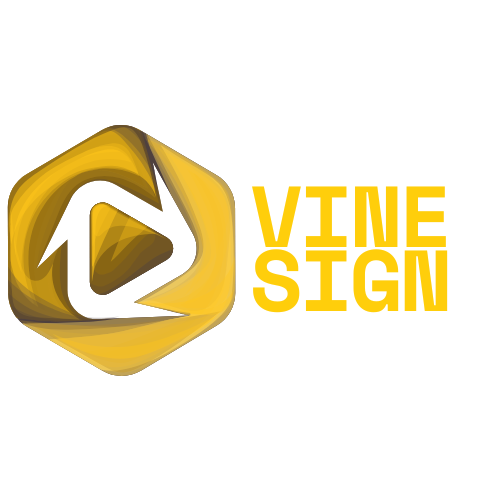In a world where scrolling through feeds has become a daily ritual, social media skills are the secret sauce to standing out. Whether it’s crafting the perfect meme or knowing when to drop a hashtag, mastering these skills can turn anyone into a digital wizard. Imagine transforming your posts from crickets chirping to a full-blown party—who wouldn’t want that?
Social Media Skills
Social media skills play a crucial role in navigating the digital landscape. Mastery of these skills can significantly impact communication and brand visibility.
Enhancing Communication
Effective communication thrives on social media. Individuals engage audiences through well-crafted posts and timely responses. Platforms like Twitter and Instagram raise the stakes, enabling prompt exchanges. Skilled users can adapt language and tone, ensuring messages resonate well with different demographics. Utilizing visual elements enhances storytelling, capturing attention quickly. Brands that communicate effectively forge stronger connections with their audiences, leading to higher engagement rates.
Building Brand Presence
Building a brand presence hinges on strategic social media skills. Profiles and posts serve as digital storefronts, showcasing products and values. Consistency in branding across platforms solidifies recognition and trust. Engaging content attracts followers and keeps them informed about promotional events and new releases. Regular updates and interactions nurture community loyalty. These strategies enhance visibility, driving traffic to websites and stores, which ultimately boosts sales and growth.
Essential Social Media Skills

Mastering essential social media skills enhances online presence and engagement. These skills include content creation, community management, and analytics.
Content Creation
Content creation involves producing engaging and relevant posts. Developing a unique voice fosters brand identity. Visual storytelling, through photos and videos, captivates audiences effectively. Crafting compelling captions encourages interaction and shares. Understanding trends allows the incorporation of timely themes into content strategy.
Community Management
Community management focuses on fostering relationships with followers. Responding promptly to comments shows appreciation and builds trust. Creating polls and questions encourages discussions among users. Monitoring conversations helps in addressing concerns swiftly. Sharing user-generated content can strengthen community bonds and enhance brand loyalty.
Analytics and Reporting
Analytics and reporting provide insights into performance metrics. Collecting data on post engagement informs future content strategies. Tracking follower demographics aids in tailoring messages to specific audiences. Regular reporting highlights successful tactics while identifying areas for improvement. Leveraging insights can drive continuous optimization and enhance overall effectiveness.
Developing Social Media Skills
Enhancing social media skills requires harnessing various resources and experiences. Individuals can improve their proficiency effectively through structured learning and engagement.
Online Courses and Resources
Online courses provide valuable information on social media strategies. Platforms like Coursera, Udemy, and LinkedIn Learning offer courses tailored for different skill levels, covering content creation and analytics. Resources such as blogs and eBooks also contribute to ongoing education. Websites like HubSpot and Hootsuite offer free guides and articles that keep users informed about industry trends. Engaging with webinars enables dynamic learning experiences where users can ask questions in real time.
Practical Experience and Networking
Real-world practice proves vital in developing social media expertise. Internships allow individuals to gain firsthand experience in managing social media accounts, shaping content, and interacting with audiences. Networking opportunities through industry meetups or online groups help form connections with seasoned professionals. Communities on platforms like Facebook and LinkedIn facilitate knowledge-sharing and mentorship. Actively participating in discussions or volunteering for projects offers practical insights, enhancing overall skills and boosting visibility in the field.
Tools For Social Media Skills Development
Developing social media skills requires access to various tools. These resources aid in content planning, performance evaluation, and audience engagement.
Scheduling and Management Tools
Scheduling and management tools streamline social media efforts. Tools like Buffer and Hootsuite allow users to schedule posts in advance, ensuring a consistent online presence. Both platforms provide convenient dashboards for tracking multiple accounts at once. This centralization minimizes the time spent managing various channels. Sprout Social offers features for collaboration among team members, enhancing workflow efficiency. Utilizing these tools simplifies task management, nurturing improved organization and productivity.
Analytics Tools
Analytics tools play a crucial role in measuring social media performance. Google Analytics tracks website traffic generated by social media platforms, providing insights into user behavior. Social media-specific tools like Facebook Insights and Twitter Analytics offer detailed metrics on engagement levels and audience demographics. These analytics inform users about post performance, helping refine content strategies. By analyzing data trends, users adjust their approaches to enhance engagement and reach. The insights gained from these tools directly contribute to informed decision-making and strategy optimization.
Mastering social media skills is essential for anyone looking to thrive in today’s digital environment. These skills not only enhance online visibility but also foster meaningful connections with audiences. By effectively crafting content and engaging with followers, individuals and brands can create a loyal community that drives growth.
Utilizing tools and resources for skill development can significantly improve one’s strategy and execution. The combination of creativity, analytics, and community management leads to a powerful social media presence. As the digital landscape continues to evolve, staying updated and adaptable will ensure sustained success in engaging with diverse audiences.

